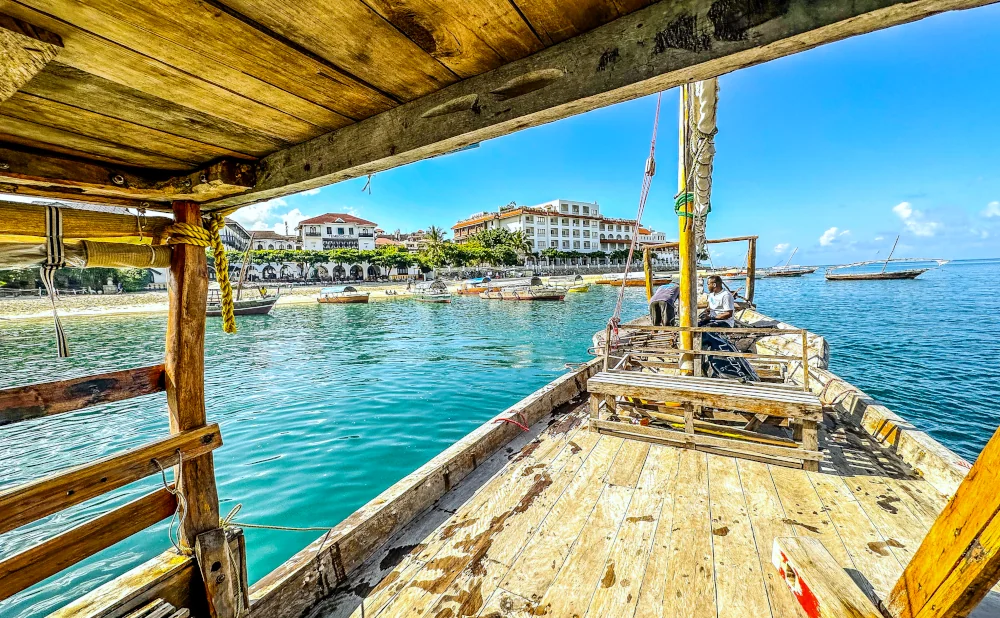Exploring the Rich History of Zanzibar Spices
Zanzibar, known as the Spice Island, has a rich history intertwined with the spice trade. Its unique climate and fertile soil have made it a hub for growing a variety of spices.
From cloves to nutmeg, the island's spices have shaped its culture, economy, and even architecture. This article takes you on a journey through the history of Zanzibar spices, their impact, and the experiences they offer today.
Join us as we explore the spice plantations, the vibrant markets, and the culinary delights of Zanzibar.
The Origins of Zanzibar's Spice Trade
The spice trade in Zanzibar began with the arrival of Portuguese traders. They introduced a variety of spices to the island, capitalizing on its ideal climate.
Over time, the Omani Arabs, who ruled Zanzibar, established large spice plantations. These plantations became the backbone of the island's economy.
Spices from Zanzibar, especially cloves, were once considered as valuable as gold. This marked the beginning of Zanzibar's golden age in the spice trade.
The Golden Age of Zanzibar Spices
The 19th century marked the golden age of Zanzibar spices. The island became the world's largest producer of cloves, a spice highly sought after globally.
The spice trade brought wealth and power to Zanzibar. It significantly influenced the island's economy, culture, and architecture.
However, the prosperity came with a dark side. The spice trade was closely linked to the slave trade, a grim chapter in Zanzibar's history.
Cloves: The Crown Jewel of Zanzibar's Spices
Cloves are the most famous spice from Zanzibar. They were once the world's leading export, considered as valuable as gold.
Large plantations were established by the Omani Arabs, who ruled Zanzibar. These plantations played a crucial role in the island's spice dominance.
""
Today, cloves remain a significant part of Zanzibar's spice trade, despite the competition from synthetic flavors and other countries.
The Cultural Impact of the Spice Trade
The spice trade left a profound impact on Zanzibar's culture. It influenced the island's architecture, language, and cuisine.
Traditional Swahili dishes are often flavored with a mix of local spices. Many Swahili words related to spices and trade also reflect this influence.
The spice trade history is a testament to Zanzibar's multicultural influences, including Arab, Indian, and European.
Spice Tours: A Journey Through Zanzibar's Plantations
Spice tours are a popular attraction in Zanzibar. They offer visitors a chance to explore plantations and taste fresh spices.
Golden Trips Tanzania offers tours that combine spice farm visits with safari and beach experiences. It's a unique way to enjoy Zanzibar beaches and delve into the island's spice history.
The Decline and Revival of the Spice Trade
The spice trade's decline in Zanzibar began with the advent of synthetic flavors. Competition from other countries also played a part.
Despite this, Zanzibar spices are still an important part of local cuisine and culture. They continue to shape the island's identity.
Today, conservation efforts are in place to preserve the historical spice plantations for future generations.
Zanzibar Today: A Spice Island Still
Today, Zanzibar remains a vibrant spice island. Its spice heritage contributes to its unique identity and appeal as a tourist destination.
Visitors can enjoy Zanzibar beaches and combine leisure with cultural exploration of the spice history. The spice market in Stone Town is a vibrant place to experience the legacy of the spice trade.
Educational programs and cultural initiatives aim to keep the history of Zanzibar spices alive. The island's spice history is celebrated during cultural festivals and through local storytelling traditions.
The Legacy of Zanzibar's Spices
The history of Zanzibar spices is a story of wealth, power, and the rise and fall of empires. It's a testament to Zanzibar's multicultural influences and its enduring appeal as a spice island.











